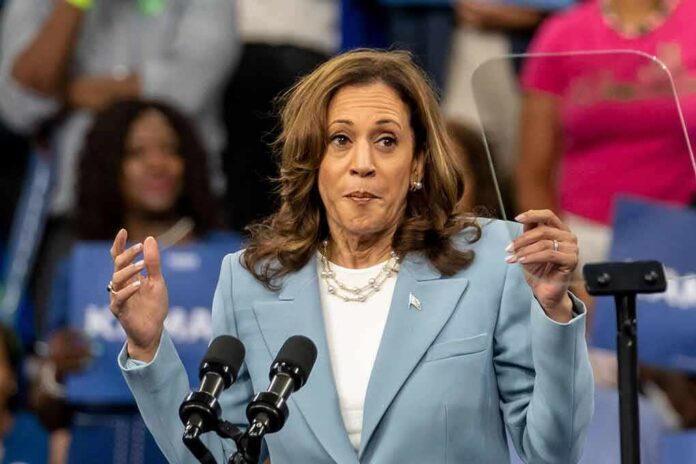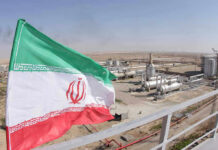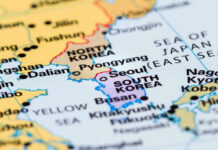Vice President Kamala Harris unveils a controversial plan to combat price gouging, sparking debate among economists and politicians.
At a Glance
- Harris proposes the first federal law against price gouging by food suppliers and grocery stores
- The plan aims to address the 25% increase in grocery costs since January 2020
- Economists are skeptical that a federal price gouging ban would lower food costs
- Critics view the proposal as heavy-handed, while supporters see it as consumer protection
Harris Takes Aim at “Excessive Profits”
Vice President Kamala Harris has unveiled a bold economic strategy for her 2024 presidential campaign, focusing on combating what she terms as “price gouging” by large corporations. The proposal, which would establish the first federal law against excessive pricing by food suppliers and grocery stores, has ignited a fierce debate among economists, politicians, and the public.
Harris’s plan is designed to address the significant 25% increase in grocery costs since January 2020, a figure that has become a major concern for many American households. The Vice President argues that despite improvements in supply chains post-pandemic, prices remain stubbornly high, suggesting that some companies may be taking advantage of the situation to boost profits.
When I am President, it will be a day one priority to bring down prices.
I’ll take on big corporations that engage in illegal price gouging and corporate landlords that unfairly raise rents on working families.
— Kamala Harris (@KamalaHarris) August 15, 2024
Skepticism from Economic Experts
While Harris’s proposal has gained support from those who believe corporations are unfairly profiting at consumers’ expense, many economists express skepticism about the effectiveness of a federal price gouging ban in lowering food costs. Critics argue that the surge in food prices is largely a result of market forces rather than corporate malfeasance.
“There are lots of reasons for the high inflation we’ve suffered over the past several years, but aggressive or unfair pricing practices are at bottom of list of reasons, if they’re on the list at all,” Mark Zandi, chief economist at Moody’s Analytics, told CBS MoneyWatch.
Opponents of the plan warn that it could lead to unintended consequences, such as shortages and market distortions. They point to historical examples where government-fixed grocery prices resulted in hoarding and other negative outcomes.
Political Implications and Debate
The proposal has unsurprisingly drawn sharp criticism from Republicans, who view it as an overreach of government power. Some have labeled it as “dangerously liberal” and compared it to socialist policies. However, Harris and her supporters argue that the measure is necessary to protect consumers and ensure fair pricing practices.
“I think that if you want to know who someone cares about, look at who they fight for. Donald Trump fights for billionaires and large corporations. I will fight to give money back to working and middle class Americans.”
The debate over Harris’s anti-price gouging strategy highlights the complex economic challenges facing the nation and the differing approaches to addressing them. As the 2024 presidential campaign heats up, it’s clear that economic policy, particularly regarding inflation and consumer costs, will remain a central issue for voters and candidates alike.
Sources:
- Kamala Harris wants to ban price gouging to tackle inflation. Here’s how economists rate her plan
- Kamala Harris allies say plan to ban ‘price gouging’ has been misconstrued











